Aboriginal and Torres Strait Islander peoples
Aboriginal and Torres Strait Islander peoples experience eating disorders and body image issues too.
We know that anyone can experience an eating disorder. We also know that discrimination or exposure to traumatic life situations can increase a person’s risk for this illness.
Emerging research tells us that Aboriginal and Torres Strait Islander people experience eating disorders and body image issues at similar rates to other people in Australia.
Australia’s First Peoples have experienced intergenerational trauma in ways that could weaken mind, body and spirit, and sometimes might lead to body image issues or eating disorders. At the same time, we recognise the strength and resilience of Aboriginal and Torres Strait Islander peoples.
We need more research to understand any cultural or other differences in the types of eating disorders that might be experienced and to develop a culturally-specific diagnostic tool that will help recognise when an eating disorder or body image issue might be a factor for someone.
Key facts
Aboriginal and Torres Strait Islander peoples experience eating disorders at a similar rate to other people in Australia – that means 1 in 10 people might experience an eating disorder in their lifetime.
Approximately three in ten Aboriginal and Torres Strait Islander young people are extremely or very concerned about their body image
Binge eating disorders are as common, if not more common, among Aboriginal and Torres Strait Islander young people
There is never one single risk factor for an eating disorder. It’s more likely the illness is due to a combination of causes – genetics, social and emotional wellbeing factors and influences from society and culture such as discrimination, racism, and cultural trauma could be involved. Read more about risks and warning signs.
At Butterfly we support all Australians with lived experience of a body image issue or eating disorder. We are committed to reducing stigma around eating disorders and increasing help-seeking and support for everyone who is impacted.
We also understand that stereotypes about who experiences eating disorders are extremely unhelpful, so we’re committed to changing public perceptions.
We’ve also developed a Reflect Reconciliation Action Plan with Reconciliation Australia and we are an organisational member of Reconciliation NSW. Everyone at Butterfly has received Aboriginal and Torres Strait Islander cultural awareness training and we will continue to work on our cultural responsiveness.
Let’s Talk
We’re here to listen in a free, confidential safe space, and our qualified counsellors have ongoing cultural competence training.
Contact us for a yarn, for information or to find a doctor, counsellor or someone else who understands, whether you need support for you, or someone else.
Call our confidential Helpline team on 1800 33 4673, chat online or email.
Additional resources
For community
The National Aboriginal Community Controlled Health Organisation (NACCHO) represents 143 Aboriginal Community Controlled Health Services (ACCHOs) across the country on Aboriginal health and wellbeing issues.
Gayaa Dhuwi (Proud Spirit) Australia is the national Aboriginal and Torres Strait Islander (Indigenous) social and emotional wellbeing, mental health and suicide prevention leadership body. It is governed and controlled by Indigenous Australian experts and peak bodies working in these areas, promoting collective excellence in mental health care.
For health practitioners
Mental First Aid Australia provides best practice guidelines for providing mental health first aid to an Aboriginal or Torres Strait Islander person.
Australian Indigenous HealthInfoNet includes a directory of publications and programs dedicated to First Nations mental health.























